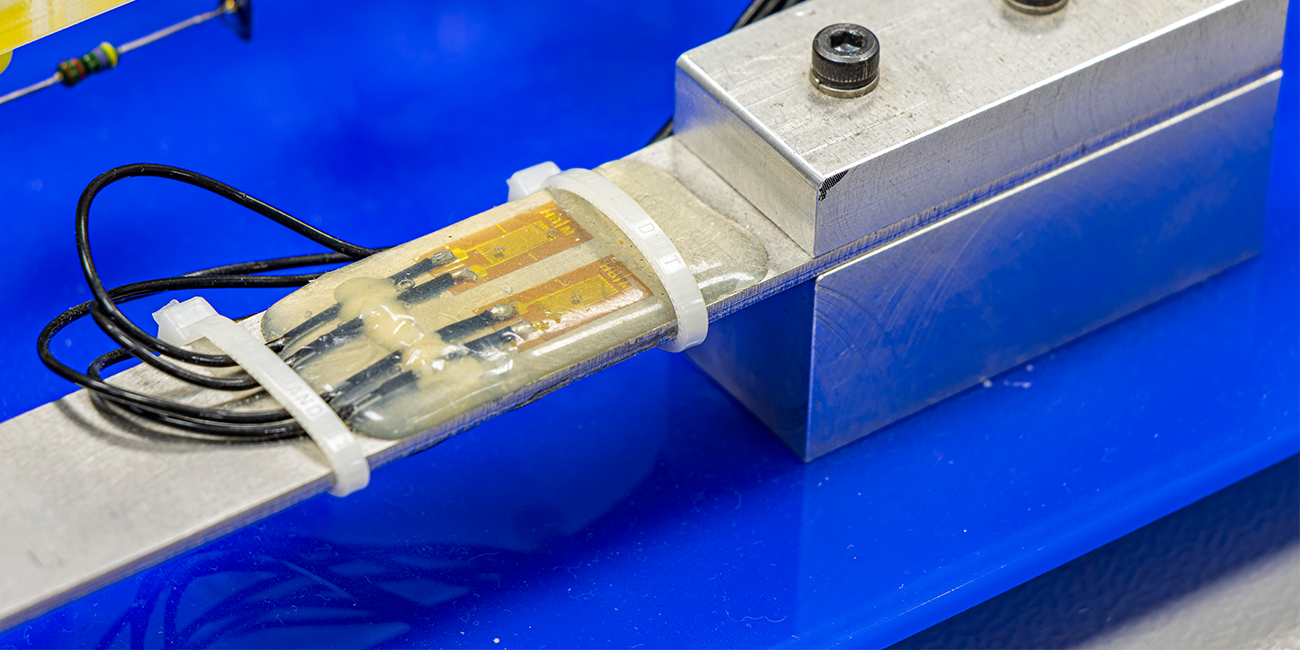The course is based on contents of the lecture Measurement Technology. Furthermore basics of automation and control engineering are helpful.
- MSc. ETiT, MSc. MEC, MSc. MedTec, MSc. WI-ETiT
- Winter semester
- approximately 40-60 students
- 2 SWS lecture, 1 SWS exercise (4 CP)
- Module number: 18-kn-2120
The lecture deals with electrical sensors for measuring mechanical quantities. Starting from the basic concepts of electromechanical measurement technology, various possibilities for classifying the sensors are presented.
A main focus of the lecture is the determination and handling of the static and dynamic transmission behaviour of sensors. From this, the error description of the sensors, their experimental determination and possible measures for error correction are derived.
Subsequently, the most important physical operating principles of electromechanical sensors are discussed. Practical examples of devices, their characteristic values are compared and application cases are shown. Current research questions regarding technological implementation and application are presented for selected sensors.
With this knowledge, you will be able to understand sensor data sheets and select the right sensor for your application.
What is Peer Instruction? In short: You teach each other! And here's how it works:
1. You will be given a multiple-choice task. The questions are mainly aimed at understanding, but sometimes knowledge or knowledge transfer is also required.
2. First thought: Everybody tries to solve the problem without help. Calculating is allowed (and required), but for now exchange with fellow students or looking up on the Internet is prohibited – just like in the exam.
3. First anonymous vote: We use the online voting system invote. By Smartphone or SMS you set your solution proposal completely anonymously.
4. Discussion with your fellow students: How did the neighbor solve the problem? Who's right? Issues with the content are best recognized and solved in the discussion. You're learning.
5. Second anonymous vote and comparison of the results: How many of you knew the right answer the first time and what about the discussion? Typically we see a clear tendency towards the right answer.
- Slides and records of the lecture
- E. Schrüfer, L. Reindl, B. Zagar: Elektrische Messtechnik
- U. Kiencke, R. Eger: Messtechnik – Systemtheorie für Elektrotechniker

